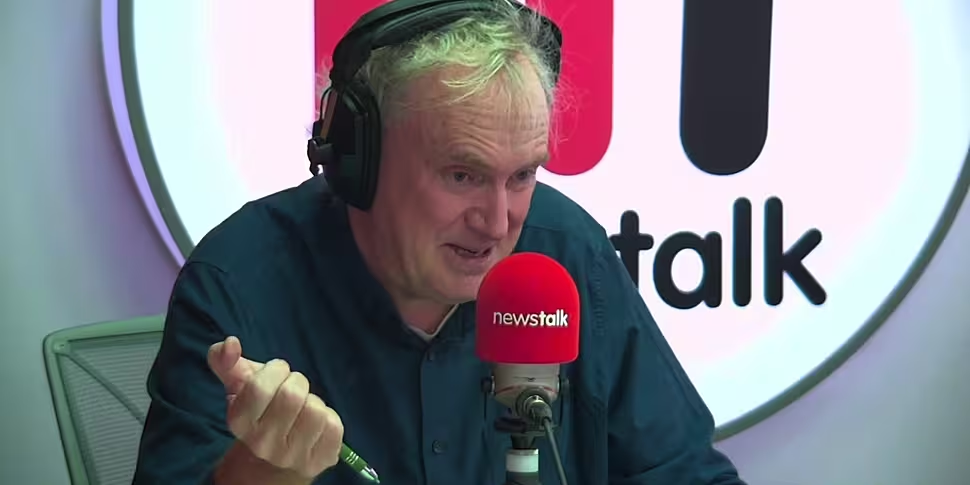Professor Luke O'Neill says there have been some fascinating findings from a UK study in which 34 people were deliberately infected with COVID-19.
The 'human-challenge study' saw healthy people aged 18-30 deliberately infected with a single nasal droplet containing a very low dose of the virus.
The volunteers - who were paid over £4,500 (around €5,400) for their participation - then had to spend two weeks in Royal Free Hospital in London, where they were closely monitored for indicators such as symptoms and viral load.
There were then follow-up checks done over a nine-month period.
The study - the findings of which have not yet been peer-reviewed - was a collaboration between by Imperial College London, the UK's department of health and social care, and a subsidiary of the commercial clinical-research organisation Open Orphan.
Professor O'Neill told The Pat Kenny Show it was an "incredible set of experiments, done in a controlled environment".
He said: “They noticed that the virus began to grow very, very fast in all their throats first.
"The throat got infected first, interestingly, even though they inhaled [the virus]. Then it went to their nose, and very high viral loads very quickly.
“Within two days, the viral counts were really, really high in people. That just shows you how aggressive COVID is.
"This wouldn’t have been Omicron - I think it was Alpha they used.”
One of the most interesting findings was that half of the participants had symptoms of the virus, but half had no symptoms at all.
Professor O'Neill explained: “That’s a really important finding - they could still be infectious because it’s in their nose. It shows us asymptomatic infection is real.
“The half who got symptoms, it was the usual things. They got things like a runny nose, while 70% had a lack of smell and taste.”
The study found that the loss of taste and smell persisted for six months in some participants, and one person hadn’t got those senses back nine months after being infected.
However, no other symptoms of long COVID - such as fatigue - were reported.
Meanwhile, the vast majority of the participants were over their infection within nine days.
Researchers also found antigen tests were a "reassuringly reliable" indicator of whether a person was infectious.
Immune response
These sort of human challenge studies can raise ethical concerns, especially if the findings aren't significant enough to justify the risk participants face.
They've previously been done in the past around diseases such as flu and malaria, with Professor O'Neill saying they can be used to test vaccines or treatments.
However, the Trinity College immunologist said it's "scientifically fascinating" to learn more about the human immune system through studies such as this.
He said: “The best bit for me was that half of them did not develop any symptoms. The question is why is that? They must have a very robust immune response.
“One of my colleagues in Trinity, Cliona O'Farrelly, is studying people who were a household partner with someone who was infected but never picked up the infection themselves. That’s a really interesting cohort.
"One thing this study shows is that innate immunity is strong in those people - they get a very rapid immune response in their nose that kills the virus on contact.”
One other question scientists have been asking is whether infection from other coronaviruses - such as the common cold - could offer immune protection against COVID.
Professor O'Neill said the evidence for that is growing.
He said: “They’ve looked in these people [in the study], and there seem to be some indications that maybe those who didn’t get sick had a previous cold from a different coronavirus family member.
“The trouble with this is that it’s quite a small study - it’s only 34 people - so you can’t draw too many conclusions like that. But wouldn’t it be brilliant if that was the case?
“That evidence is growing, and there was a superb paper this week from a group in California who’ve shown previous cold exposure giving a big t-cell response against COVID-19.”









